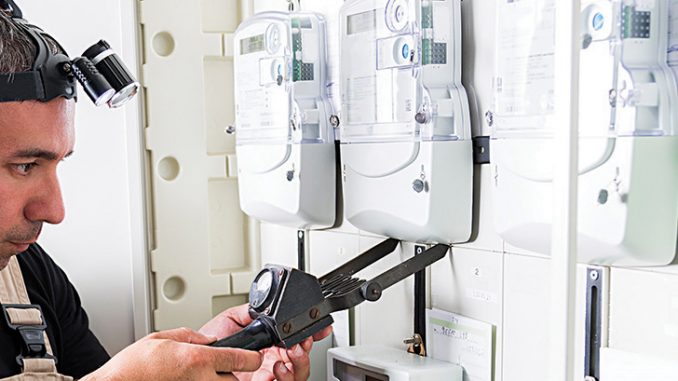
Energy meters are one of the most crucial parts of an electrical system since they account for electricity consumption at various levels in the power distribution chain. Apart from enabling performance assessment and estimating losses in the system, energy meters also determine the revenue of the utilities. To this end, it is important to test the quality and reliability of energy meters in order to ensure accuracy in the recording of electricity consumption and billing. Meter testing further prevents meter malfunctioning and failures and ensures long life of meters without any degradation in performance.
Today, meters of different technologies and designs are in use and they often pose interoperability issues, making meter testing an even more complex task. However, the Bureau of Indian Standards (BIS) has defined metering standards that help undertake a comprehensive assessment of meters. The key requirement for meter testing is adequate availability of meter testing laboratories. While testing facilities in India have improved, there is a growing need for more advanced facilities in view of the increasing penetration of smart meters, which entail special testing requirements.
Standards for meters
The BIS standards for meters include IS 13779 for single-phase and three-phase conventional whole current meters; IS 15884 for single-phase/three-phase prepaid whole current meters; IS 14697 for three-phase transformer-operated meters; and IS 15959 Part 1 for data exchange protocol. In addition to this, tests for solar radiation and ingress protection, namely, IP54, need to be performed for outdoor meters.
In the case of smart meters, testing is done as per the IS 16444 Part 1 (2015) Amendments 1 and IS 15959 Part 2 (2015) Amendments 1 and 2 for whole current single-phase and three-phase meters, and IS 16444 Part 2 (2017) and IS 15959 Part 3 (2017) for transformer-operated smart meters. The communicability test is done on smart meters as per IS 15959 Parts 2 and 3.
Further, the functional requirements and technical specifications of smart meters as well as advanced metering infrastructure have been laid down by the Central Electricity Authority (CEA). The technical requirements developed by any utility must adhere to BIS standards and CEA specifications.
Testing requirements
Meter testing is required at all stages of meter development, right from designing of meters to their installation in the field. The key meter tests include development test, type test, routine test and acceptance test. The development test is undertaken to ensure that the meter complies with the product design while the type test helps ensure that the meter conforms to product standards. Routine tests and acceptance tests are undertaken at the factory and at the time of acceptance of a particular lot of meters by the procurer respectively.
Besides, smart meters must also be subject to metrology tests, load switch capability tests and device language message specification protocol verification. Metrology testing consists of several tests to assess the insulation properties, accuracy, electromagnetic compatibility, climatic influences and other electrical and mechanical requirements. The load switch capability test assesses the performance of the load switch used for remote connect/disconnect. The DLMS protocol verification is the last stage of meter testing. The purpose of this test is to verify the interoperability between the smart meters and other equipment in a system.
Challenges and the way forward
The key concerns pertaining to meter testing are the lack of adequate testing facilities and the long duration of tests that lead to delays in procurement. While the number of testing facilities in India (including those set up by manufacturers and discoms apart from independent third-party labs) has increased over the past few years, testing requirements have also increased, especially with the growing adoption of smart meters. In February 2019, the Electrical Research and Development Association signed an MoU with Pashchimanchal Vidyut Vitran Nigam Limited (PVVNL) for setting up a testing laboratory at PVVNL Muradnagar, Uttar Pradesh. The Central Power Research Institute (CPRI) also initiated the development of a regional testing laboratory at Nashik, Maharashtra, in January 2019. State-of-the-art facilities are being established at the lab for testing of smart energy meters.
Meanwhile, various measures are being taken to reduce the duration of meter testing. These include the use of different samples for different tests, and simplification of meter specifications in tenders and anti-tamper requirements. Further, issues such as malfunctioning of meters due to the poor quality of power supply and failure of meter LCD display need to be addressed. In the case of smart meters, reliability and communication tests should be undertaken mandatorily.
Going ahead, the central government aims to have smart meters installed for all consumers by 2022. This massive addition of smart meters will require a larger number of testing facilities, located in different parts of the country.
